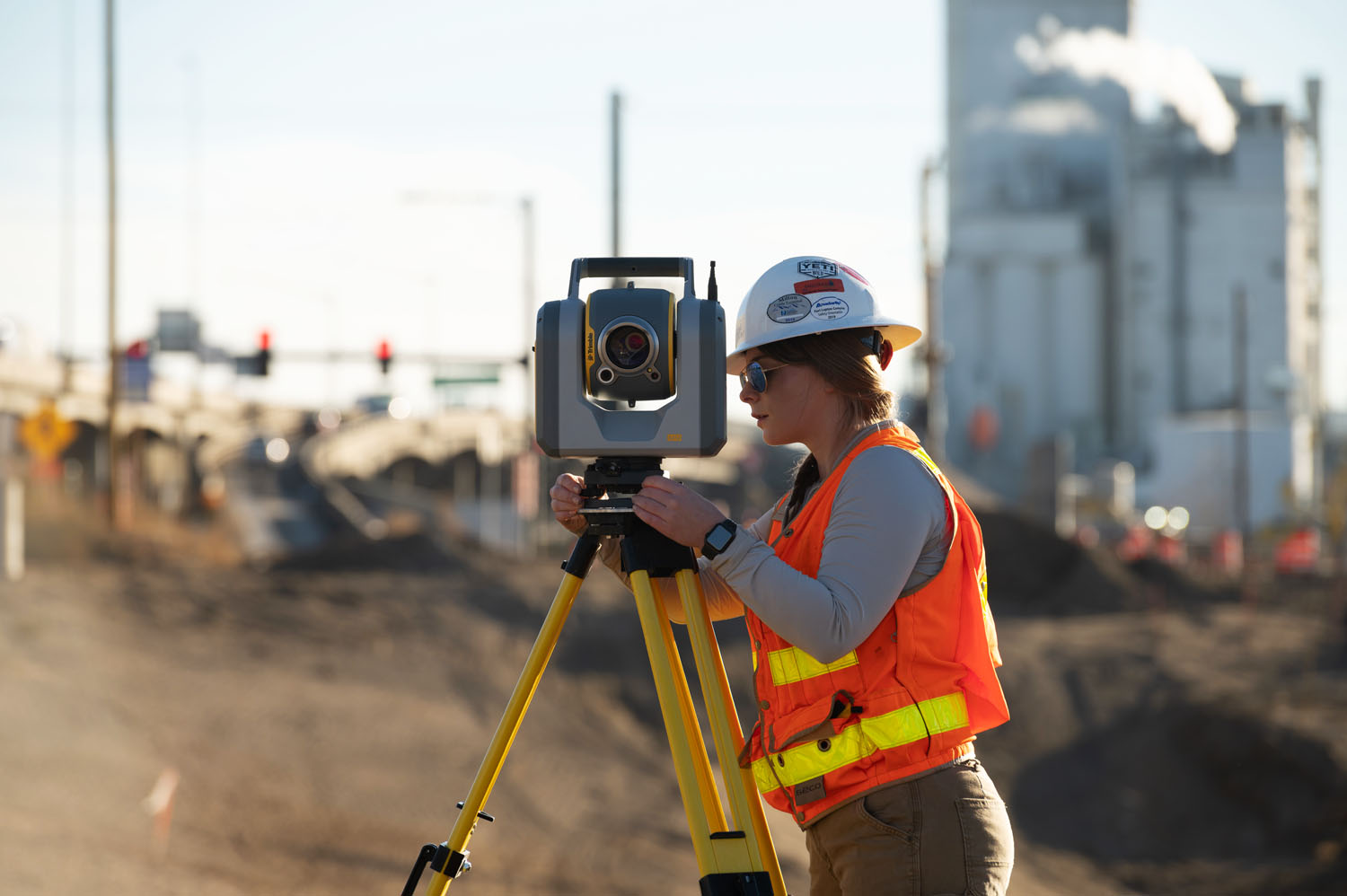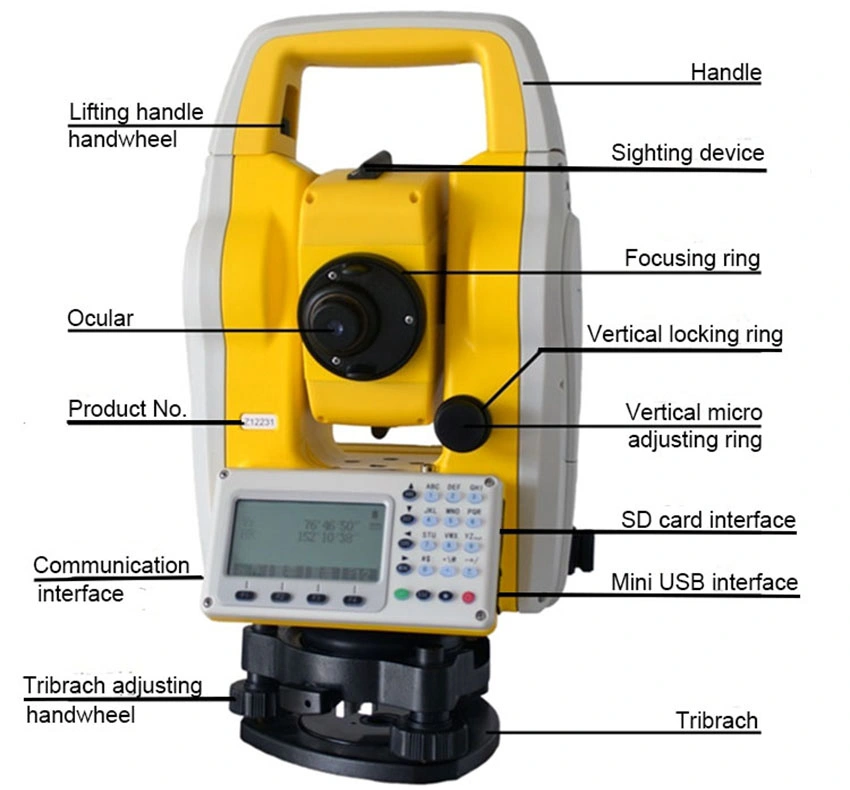A total station is a versatile and high-tech instrument used in surveying and construction, combining features of a traditional theodolite with an electronic distance meter (EDM). It allows for precise measurement of both horizontal and vertical angles, as well as the slope distance from the instrument to a particular point. This data can then be used to calculate coordinates, elevations, and other valuable information for various tasks.
Here’s a breakdown of its key features:
- Angle Measurement: Total stations use an electronic theodolite that digitally measures both horizontal and vertical angles with high accuracy. This allows for precise determination of directions and slopes.
- Distance Measurement: An integrated EDM emits a laser beam and measures the time it takes for the reflected signal to return, providing accurate measurements of distances up to several kilometers.
- Onboard Computer: Most total stations have an onboard computer that processes the collected data, performing calculations like coordinate determination, area and volume calculations, and even setting out points for construction projects.
- Data Storage and Transfer: Modern total stations can store and transfer collected data electronically, making it easy to integrate with software programs for further analysis and documentation.

Applications of Total Stations:
- Land Surveying: Total stations are essential for land surveying tasks like boundary determination, topographic mapping, and setting out points for infrastructure projects.
- Construction: They are widely used in construction for tasks like foundation layout, building elevation control, and as-built surveys.
- Engineering: In civil engineering projects, total stations are used for tasks like road and tunnel alignment, deformation monitoring, and volume calculation.
- Mining and Archaeology: They are also used in mining and archaeology for tasks like pit and stockpile volume measurement, and excavation site documentation.
Overall, total stations are powerful tools that have revolutionized the way we measure and map the world around us. Their accuracy, versatility, and ease of use make them essential equipment for a wide range of professionals in various fields.

Total Station Companies
Here are some of the leading total station companies in the market, each known for their innovative technologies and high-quality instruments:
1. Trimble: A US-based company renowned for its advanced surveying equipment, Trimble offers a wide range of total stations catering to various needs and budgets. Their popular models include the Trimble S7, SX10, and TX5, known for their accuracy, long-range capabilities, and user-friendly software.
2. Leica Geosystems: A Swiss company with a rich history in surveying instruments, Leica Geosystems is known for its premium-quality total stations. Their high-end models like the Leica TS13 and Nova MS60 boast exceptional accuracy, advanced scanning capabilities, and seamless integration with other Leica equipment.
3. Topcon: A Japanese company with a strong presence in the construction and surveying industries, Topcon offers a diverse range of total stations. Their popular models like the Topcon GTS-240 and GL-100 are known for their affordability, durability, and intuitive interface, making them a good choice for entry-level and mid-range users.
4. Sokkia: Another Japanese company with a long history in surveying instruments, Sokkia offers a range of total stations known for their reliability and ease of use. Their popular models like the Sokkia SX4L and FX series are known for their compact design, long battery life, and user-friendly features.
5. Stonex: A relatively new player in the market, Stonex has quickly gained recognition for its innovative and competitively priced total stations. Their popular models like the Stonex R3 and S5 are known for their advanced features, long-range capabilities, and user-friendly software, making them a good choice for value-conscious users.
These are just a few of the many total station companies on the market. When choosing a total station, it’s important to consider your specific needs and budget, as well as the features and performance that are most important to you.